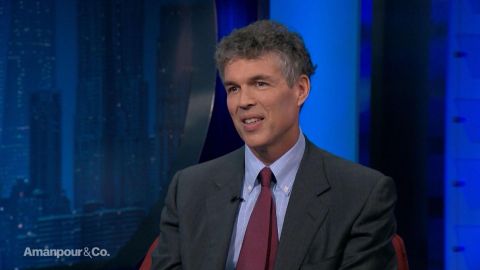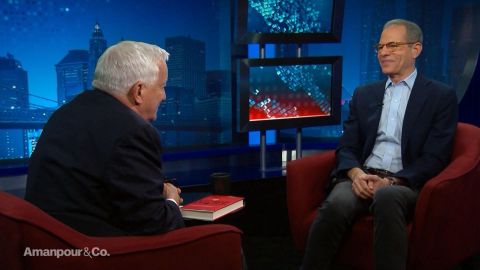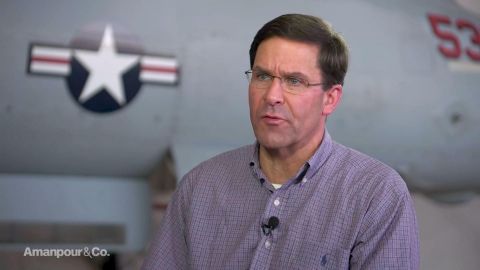Read Transcript EXPAND
CHRISTIANE AMANPOUR: I guess I’m asking you how does it feel to see your allies react to what they believe is a betrayal, throwing rotten fruit at you? How do you react to Russian forces, and we have pictures of them, marching nonchalantly into the abandoned U.S. bases?
MARK ESPER, U.S. DEFENSE SECRETARY: So, I think you have to go back to the original reason why we partnered with the SDF is going back to the Obama administration carried through into the Trump administration. The fate of ISIS which resulted in the physical destruction of the caliphate. We didn’t sign up to fight a war, to defend the Kurds against the long- standing NATO ally and we certainly didn’t sign up to help them establish an antonymous Kurdish state. That was the conflict that the Turks put us in between. An advancing Turkish army opposed by the Kurds, at least elements of the SDF, and at the same time, you had Syrian and Russian forces moving in. That’s not the position which we want our young American service-members to be in.
AMANPOUR: There’s so some many bits and bobs to ask you about. But first and foremost, the 120-hour of cessation of hostility, it’s not a ceasefire obviously.
ESPER: Right.
AMANPOUR: As you know better than I do. It’s not a formal ceasefire, it’s a pause. And the president of Turkey has said that they’re going to wait to see. I’m going to play this little sound bite.
(BEGIN VIDEO CLIP)
RECEP TAYYIP ERDOGAN, TURKISH PRESIDENT (through translator): That if these promises are not realized, as soon as the 120 hours are over, our operation of peace spring will continue more rapidly than before.
(END VIDEO CLIP)
AMANPOUR: And he has actually said furthermore, “We will start where we left off and continue to crush the terrorists’ heads.” Now, he’s talking about the SDF, the Kurds. What do you make of that?
ESPER: Well, again, we would call upon President Erdogan to be more responsible, to act prudently. What we’ve seen, with the reporting I’ve heard in the last, at least, previous 24 hours, is that the ceasefire is largely holding. There is some skirmishing here and there but when —
AMANPOUR: But it expires tonight.
ESPER: It does. But we are getting reports that the SDF are making good faith efforts to withdraw from the area in time. And I think, if they need a little bit more time, should be giving a little bit more time. I think at the end of the day, what we’ve called upon is for there to be a ceasefire and that we reach a political agreement, a settlement between the parties that can be enduring.
AMANPOUR: Can I just read you a couple of things? I asked you as a military man, you’re a fighting soldier. You’ve done this for your country and, actually, to protect Saudi Arabia from invasion —
ESPER: Sure.
AMANPOUR: — of Saddam Hussein, potentially, and that was in — nearly 30 years ago. There are a lot of U.S. forcers, your brave special forces, who are telling “Fox News,” that’s an ally of President Trump’s. We’re not talking about anybody else, “Fox News,” that they feel ashamed. That they have felt really wounded to see their allies who they fought alongside with betrayed in this way. We see an army captain who has talked to the “New York Times” and basically, he said, I joined the army to prevent genocide not pave the way for it.
About This Episode EXPAND
In an exclusive interview, Christiane Amanpour speaks to U.S. Secretary of Defense Mark Esper in Saudi Arabia as thousands of new U.S. troops are deployed to the country to try and visibly confront Iran. Plus, Michel Martin speaks to Tom Mueller about the complex relationship between whistleblowers and society, and Walter Isaacson speaks to Richard Stengel about his new book “Information Wars.”
LEARN MORE


